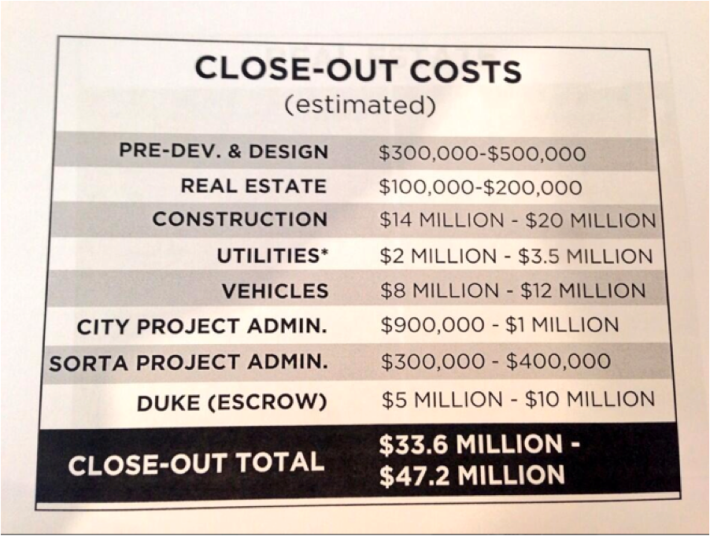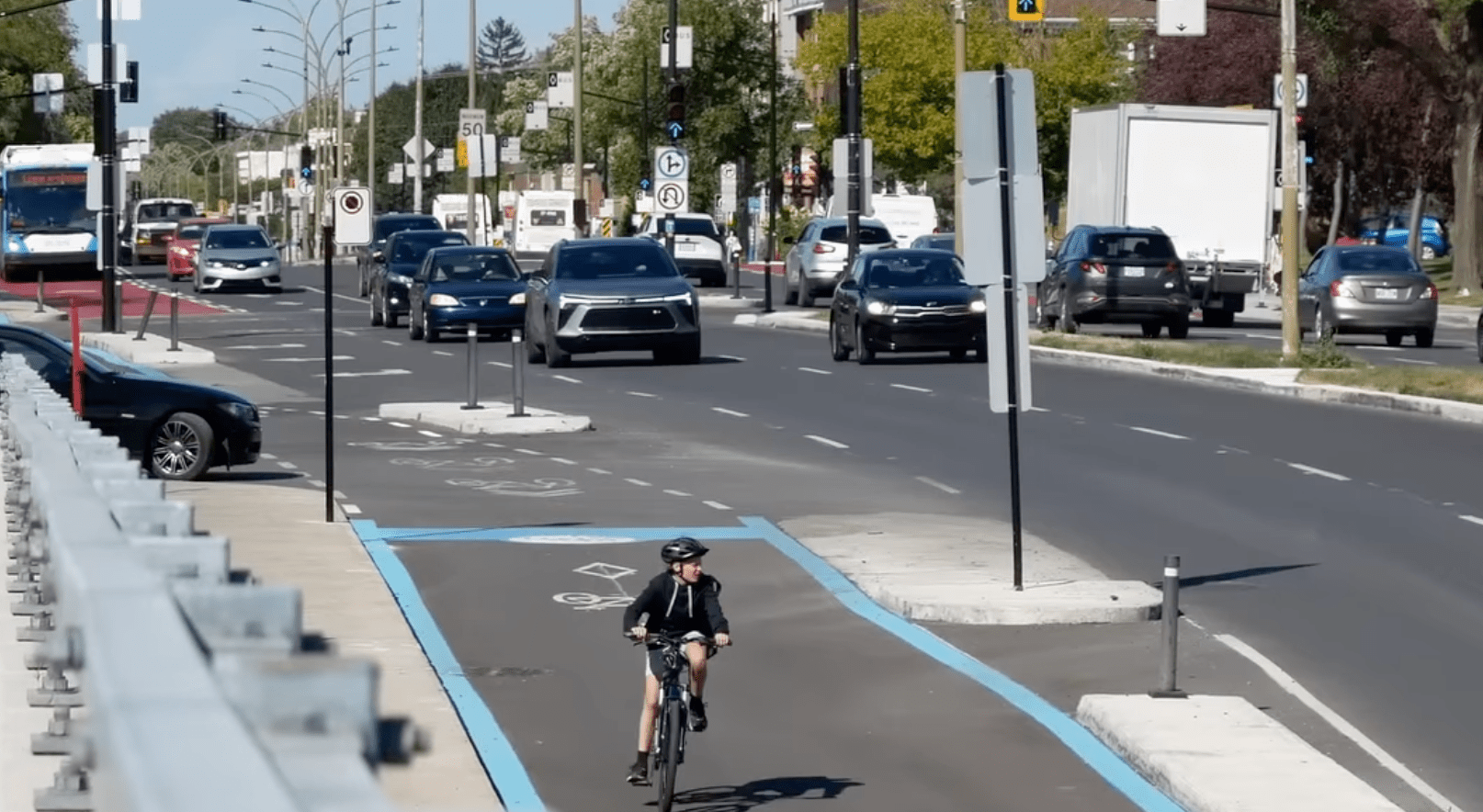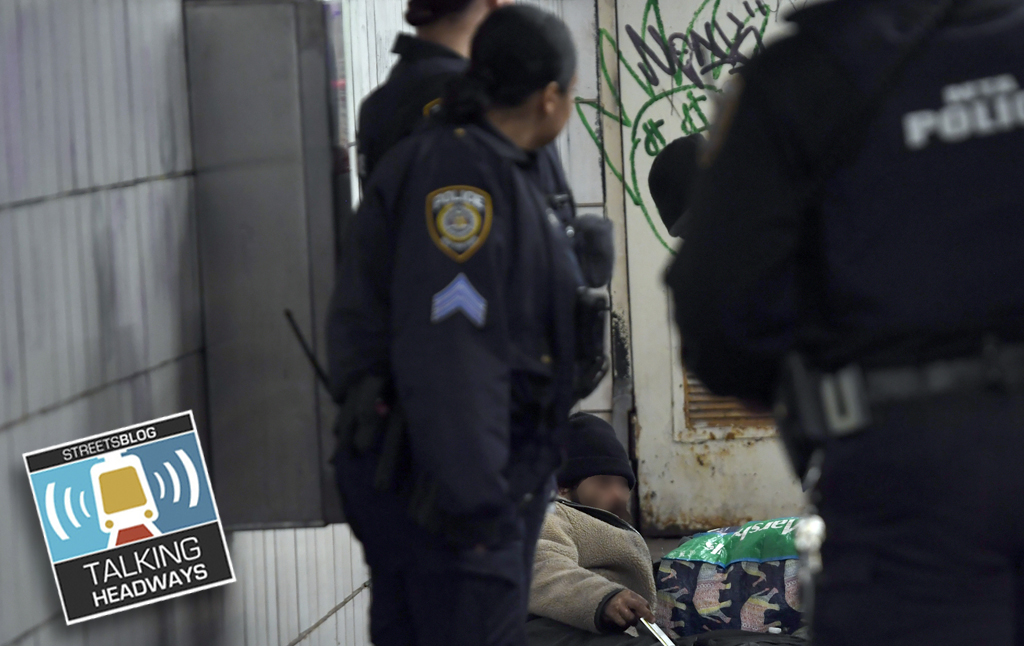Cincinnati Mayor Mark Mallory is frustrated that all his work to bring the streetcar to fruition might be for naught, now that anti-streetcar John Cranley has been elected to take his place. “I’m from the tough part of town,” Mallory joked. “I will take the guy in a dark alley. I’m not afraid to use the threat of physical violence.”

All jokes aside -- assuming Mallory was joking -- it’ll cost the city of Cincinnati up to $125 million to halt progress on its streetcar project now -- but that’s just what Mayor-elect John Cranley plans to do. It was his campaign promise.
“We’re going to have to keep this fight going,” Mallory said yesterday at Transportation for America’s re-launch event. “We’re probably going to have to go to court.”
Obstacles like this are extremely frustrating to local officials trying to improve their cities. At Tuesday's event, a celebration of local control over transportation projects, the panel on “barriers to success” became a bit of a support group for Mallory.
“At the state level, I don’t have a partner on this project,” Mallory lamented. Well before he had John Cranley to worry about, he’s had to battle the state over transportation investment, regarding the streetcar and more. “My governor gave back $400 million to the federal government for high-speed rail and took away $52 million that a previous governor put into my streetcar project and spread that around the state for other highway projects.”
The story gets even worse. “Insult to injury,” Mallory said, “the state legislature in Ohio passed legislation specific to the Cincinnati streetcar project that you can’t get any state money for this project. And that’s an assault.”
“It’s punitive,” piped in Urban League CEO Marc Morial, in solidarity.
“For me, it’s not a matter of a lack of support,” Mallory said. “I have adversaries on this project. That doesn’t bode well if talking about the advancement of our region, driven at the local level.”
That was the theme of the day: Transportation for America is trying to empower mayors and other local leaders who are trying to innovate in their cities, adding transit and infrastructure that invites people to bike and walk more.
It's probably safe to assume John Cranley won't be joining T4America's new alliance of innovative mayors. But Mallory is a natural. He listened to the 14 economic development studies that all came to the same conclusion: Cincinnati needed to link downtown with uptown and the Over-the-Rhine neighborhood. So he went to work rebuilding the streetcar network, which existed in his city from the 1860s until 1951, running on 220 miles of track. He can’t recreate that system overnight but he’s starting in the urban core, with the hope of bringing it outward to the neighborhoods.
The outlook for that is pretty dim right now, thanks to Cranley, who would rather spend streetcar money on a highway interchange. Streetcar executive John Deatrick announced this afternoon that the costs of shutting down the project -- which is already under construction -- will amount to $33.6 to 47.2 million, plus the costs of materials on hand and being manufactured and the $44.9 million in forfeited federal grants. The federal government has been clear Cranley can’t just reprogram its contribution for highways. All tolled, the city will spend $111.4 to $125 million for nothing. "Or we could continue and have a #CincyStreetcar for $133M," tweeted advocate Ryan Lammi. The real possibility of litigation -- as Mallory has already hinted -- could bring the final price tag above the cost of building the system.
Mallory’s story is all too familiar to many local leaders whose visionary ideas are rebuffed by state officials who hold the purse strings. Even support at the federal level, which Mallory’s streetcar project has, isn’t always enough to overcome state intransigence.
But federal and local officials don’t even have each other’s phone numbers. It all goes through the state or, at best, the metropolitan planning organization. Polly Trottenberg, under secretary for policy at U.S. DOT, says she’s talked with NACTO, the National Association of City Transportation Officials, about how to remedy that situation. “It is, I will confess, surprisingly difficult,” she told the crowd at the T4 event. “DOT has been dealing with one set of grantees for 60 years -- state DOTs.”
Of course, Cincinnati’s biggest headache now isn’t coming from the state -- it’s coming from its mayor-elect. Will the threat of a $47 million price tag keep Cranley from pulling the plug on the project? Stay tuned.





